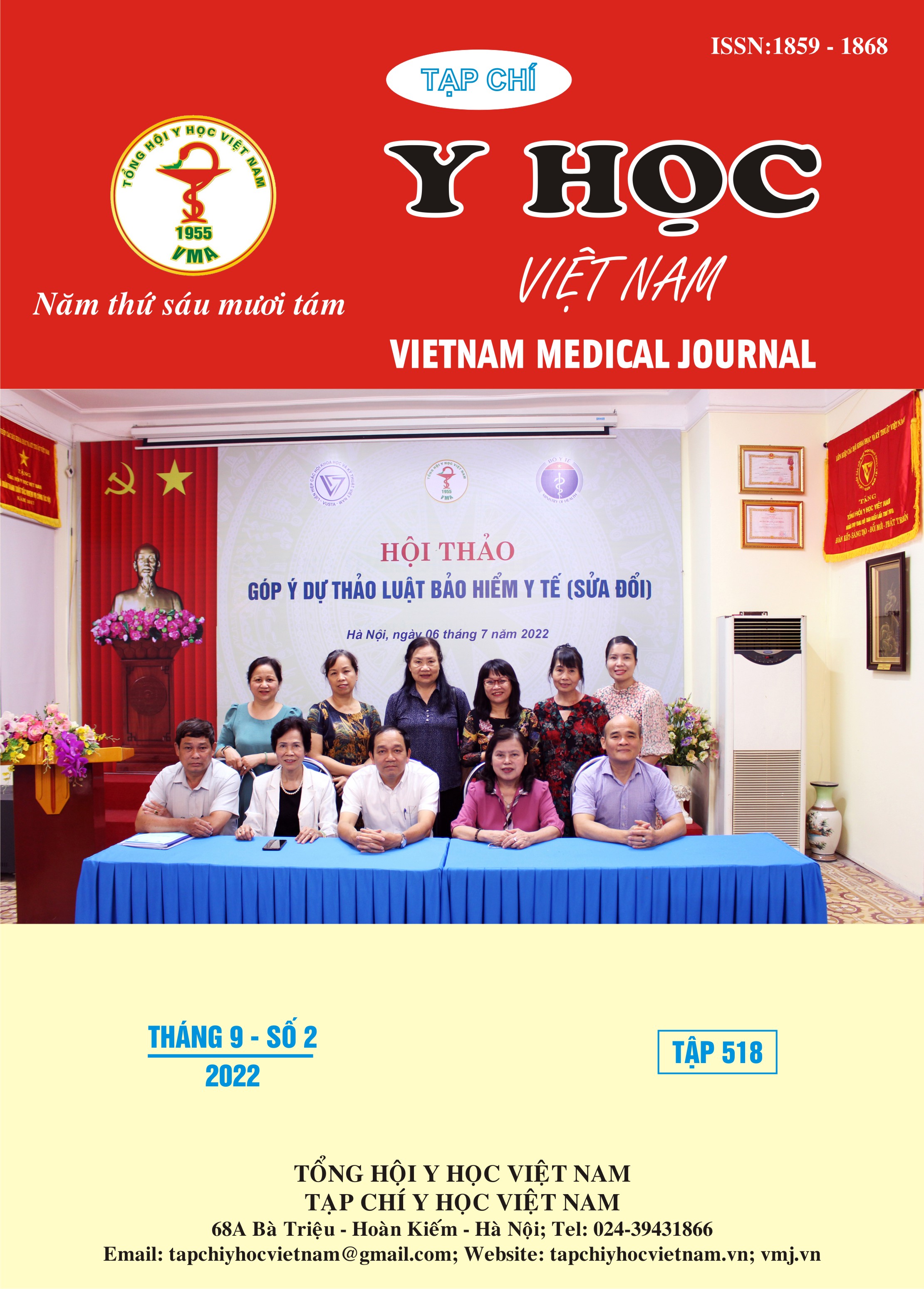CLINICAL FEATURES OF AUTONOMIC AROUSAL SYMPTOMS IN PATIENTS WITH ATRIAL FIBRILLATION WITH COMORBID ANXIETY DISORDERS
Main Article Content
Abstract
Objectives: Describe clinical features of autonomic arousal symptoms in patients with atrial fibrillation with anxiety disorders. Subjects and methods: Cross-sectional description of inpatients with atrial fibrillation at National Heart Institute - Bach Mai Hospital from August 2021 to October 2022. Results: 39.6% of inpatients with atrial fibrillation suffer comorbid anxiety disorder. Autonomic arousal symptoms are the most common symptoms in this group of patients, encountered in 100% of patients. Cardiovascular system symptoms are the most common, occurring in 100% of patients. Autonomic arousal symptoms in other organ systems such as respiratory (99.5%), digestive (96.4%), urinary (74.6%), neuromuscular (91, 4%), systemic symptoms (94.9%) are also common. In the majority of patients, these symptoms present to be mild to moderate. Conclusion: Anxiety disorder is a common disease associated with atrial fibrillation, autonomic arousal symptoms are very common symptoms and noticeable in this group of patients.
Article Details
Keywords
rung nhĩ, rối loạn lo âu, kích thích thần kinh thực vật
References
2. Goren A, Phatak H, Gupta S, Liu X. Quality of Life, Activity Impairment, and Healthcare Resource Utilization Associated with Atrial Fibrillation in the US National Health and Wellness Survey. Baradaran HR, ed. PLoS ONE. 2013;8(8):e71264. doi:10.1371/journal.pone.0071264
3. Carroll D, Lane D, Thrall G, Lip GYH. Depression, Anxiety, and Quality of Life in Patients With Atrial Fibrillation. Chest. 2007;132(4):1259-1264. doi:10.1378/chest.07-0036
4. Hansson A, Madsen-Härdig B, Bertil Olsson S. Arrhythmia-provoking factors and symptoms at the onset of paroxysmal atrial fibrillation: A study based on interviews with 100 patients seeking hospital assistance. BMC Cardiovasc Disord. 2004;4(1):13. doi:10.1186/1471-2261-4-13
5. Sears SF, Barksdale DJ, Thompson TS. The Effect of Anxiety and Depression on Symptoms Attributed to Atrial Fibrillation: DEPRESSION, ANXIETY, AND ATRIAL FIBRILLATION. Pacing and Clinical Electrophysiology. 2014;37(4):439-446. doi:10.1111/pace.12292
6. Vasilopoulos G, Koutelekos I, Polikandrioti M, et al. Anxiety and Depression in Patients with Permanent Atrial Fibrillation: Prevalence and Associated Factors. Cardiology Research and Practice. 2018;2018:1-9. doi:10.1155/ 2018/7408129
7. Lane DA, Nouwen A, Langman CM. Illness perceptions, affective response, and health-related quality of life in patients with atrial fibrillation. Journal of Psychosomatic Research. 2009; 66(3) :203-210. doi:10.1016/ j.jpsychores.2008.10.007


